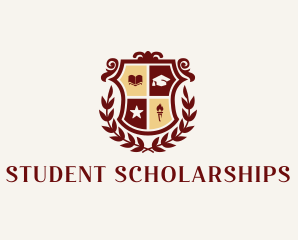Introduction
In today’s rapidly evolving world, careers in science, technology, engineering, and mathematics (STEM) are more important than ever. However, the cost of higher education can be a significant barrier for many students pursuing these fields. The National Science Foundation (NSF) offers a solution through its scholarship programs, designed to support students in STEM disciplines and help them achieve their academic and career goals.
Since its establishment in 1950, the NSF has been a driving force in advancing scientific research and education in the United States. Through its scholarship programs, the NSF provides financial assistance, mentorship, and professional development opportunities to students at all levels of their academic journey.
In this comprehensive guide, we’ll explore everything you need to know about NSF scholarships, including eligibility criteria, application processes, and tips for maximizing your chances of success.
What is the National Science Foundation (NSF)?
The National Science Foundation is an independent federal agency that supports fundamental research and education in all fields of science and engineering. With an annual budget of over $8 billion, the NSF funds approximately 25% of all federally supported basic research conducted at U.S. colleges and universities.
The NSF’s scholarship programs are part of its broader mission to promote STEM education and workforce development. These programs aim to increase the number of students pursuing STEM degrees, particularly those from underrepresented groups, and to prepare them for successful careers in STEM fields.
Key Benefits of NSF Scholarships
- Financial Support: NSF scholarships provide funding to cover tuition, fees, and other educational expenses, reducing the financial burden on students and their families.
- Professional Development: Many NSF programs offer mentorship, internships, and research opportunities to help students gain practical experience and build their professional networks.
- Diverse Opportunities: NSF scholarships are available to students at all levels, from undergraduate to graduate and postdoctoral studies.
- Focus on Underrepresented Groups: The NSF is committed to increasing diversity in STEM fields and offers targeted scholarships for women, minorities, and students with disabilities.
- Career Advancement: NSF scholarships often include career development resources, such as workshops, conferences, and networking events, to help students transition from academia to the workforce.
Types of NSF Scholarships
The NSF offers a variety of scholarship programs to meet the diverse needs of STEM students. Here are some of the most popular programs:
1. Scholarships in Science, Technology, Engineering, and Mathematics (S-STEM)
- This program provides scholarships to low-income students pursuing degrees in STEM fields. It also supports institutions in developing strategies to recruit, retain, and graduate these students.
2. Graduate Research Fellowship Program (GRFP)
- The GRFP is one of the most prestigious NSF programs, offering three years of financial support to graduate students in STEM disciplines.
3. Robert Noyce Teacher Scholarship Program
- This program provides scholarships to students pursuing teaching careers in STEM fields, with a focus on high-need school districts.
4. CyberCorps®: Scholarship for Service (SFS)
- The SFS program offers scholarships to students pursuing degrees in cybersecurity, with a commitment to work in government service after graduation.
5. Alliances for Graduate Education and the Professoriate (AGEP)
- AGEP supports underrepresented minority students pursuing graduate degrees in STEM fields, with a focus on increasing diversity in academia.
Eligibility Requirements for NSF Scholarships
While eligibility criteria vary by program, most NSF scholarships require applicants to meet the following requirements:
1. U.S. Citizenship or Permanent Residency
- Most NSF programs are open to U.S. citizens, nationals, or permanent residents.
2. Enrollment in an Accredited Institution
- Students must be enrolled or planning to enroll in an accredited college or university in the United States.
3. Academic Achievement
- Many scholarships require a minimum GPA (typically 3.0 or higher) and demonstrated academic excellence.
4. Field of Study
- Applicants must be pursuing a degree in a STEM discipline, as defined by the NSF.
5. Financial Need
- Some programs, such as S-STEM, are need-based and require applicants to demonstrate financial need.
6. Commitment to Diversity
- Many NSF programs prioritize applicants from underrepresented groups, including women, minorities, and students with disabilities.
How to Apply for NSF Scholarships
Applying for NSF scholarships is a detailed process, but it’s essential to stay organized and meet all deadlines. Here’s a step-by-step guide:
1. Research Programs
- Start by exploring the NSF website to identify scholarship programs that match your academic and career goals.
2. Create an Account
- Most NSF applications are submitted through the NSF FastLane system. Create an account to access application materials and track your progress.
3. Prepare Required Documents
- Gather necessary documents, such as transcripts, letters of recommendation, and a personal statement.
4. Write a Strong Proposal
- Many NSF programs require a research proposal or project plan. Be sure to clearly articulate your goals, methodology, and expected outcomes.
5. Submit Your Application
- Review your application carefully and submit it before the deadline.
6. Follow Up
- Monitor your email and FastLane account for updates or requests for additional information.
Tips for Maximizing Your Chances of Winning an NSF Scholarship
- Start Early: Begin your research and application process as soon as possible to avoid last-minute stress.
- Tailor Your Application: Customize your application to align with the specific goals and requirements of each program.
- Highlight Your Achievements: Showcase your academic accomplishments, research experience, and commitment to diversity.
- Seek Strong Recommendations: Choose recommenders who know you well and can speak to your strengths and potential.
- Proofread Your Application: Ensure your application is free of errors and clearly conveys your qualifications and aspirations.
Important Deadlines to Remember
NSF scholarships have varying deadlines, so it’s crucial to stay organized. Here are some general tips:
- S-STEM Deadline: Typically in March.
- GRFP Deadline: Usually in October.
- Noyce Scholarship Deadline: Varies by institution.
- SFS Deadline: Typically in February.
Pro tip: Check the NSF website for specific deadlines and set reminders to ensure you don’t miss any opportunities.
Frequently Asked Questions (FAQs)
1. Can I apply for multiple NSF scholarships?
- Yes, you can apply for multiple programs as long as you meet the eligibility criteria.
2. Do I need to attend a specific college to qualify for NSF scholarships?
- No, NSF scholarships are open to students attending accredited institutions in the United States.
3. Is there an age limit for NSF scholarships?
- Most scholarships are open to students of all ages, but some programs may have specific age requirements.
4. Can I use NSF scholarships for graduate school?
- Yes, NSF offers scholarships for undergraduate, graduate, and postdoctoral students.
Conclusion
NSF scholarships are a powerful resource for students pursuing careers in STEM fields. By providing financial support, mentorship, and professional development opportunities, the NSF empowers students to achieve their academic and career goals.
Don’t miss out on this incredible opportunity. Start your application today and take the first step toward advancing your STEM career. Remember, deadlines vary by program, so check the NSF website for specific dates. Apply now and invest in your future!









